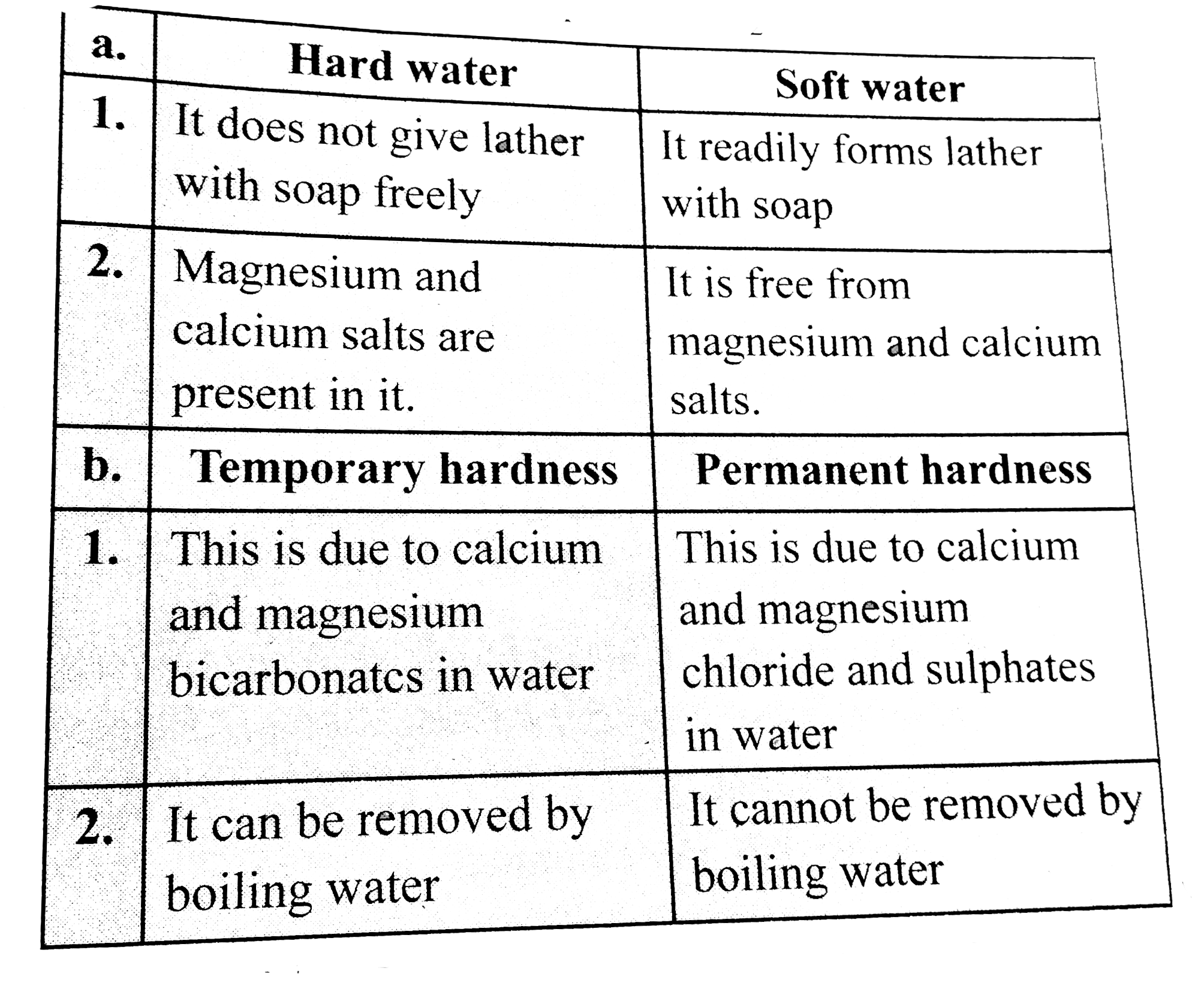Distinguish between :
a. Hard water and soft water
b. Temporary hardness and permanent hardness
Video Solution
Text Solution
|
Topper's Solved these Questions
- HYDROGEN, WATER AND HYDROGEN PEROXIDEBOOK - CENGAGE CHEMISTRYCHAPTER - HYDROGEN, WATER AND HYDROGEN PEROXIDEEXERCISE - Exercises (Linked Comprehension )
20 Videos
- HYDROGEN, WATER AND HYDROGEN PEROXIDEBOOK - CENGAGE CHEMISTRYCHAPTER - HYDROGEN, WATER AND HYDROGEN PEROXIDEEXERCISE - Exercises Multiple Correct
19 Videos
- HYDROGEN, WATER AND HYDROGEN PEROXIDEBOOK - CENGAGE CHEMISTRYCHAPTER - HYDROGEN, WATER AND HYDROGEN PEROXIDEEXERCISE - Ex 3.1
4 Videos
- GENERAL ORGANIC CHEMISTRYBOOK - CENGAGE CHEMISTRYCHAPTER - GENERAL ORGANIC CHEMISTRYEXERCISE - Analytical and Descriptive
1 Videos
- IONIC EQUILIBRIUMBOOK - CENGAGE CHEMISTRYCHAPTER - IONIC EQUILIBRIUMEXERCISE - Archives Subjective
28 Videos
Similar Questions
Knowledge Check
Hard water contains dissolved salts such as magnesium and calcium chlorides, bicarbonates, or sulphates. There are two kinds of hardness of water, i.e. temporary hardness and permanent hardness.
Permanent hardness of water can be removed byAdistillationBpassing it through ion-exchange resinsCadding various phosphates.Dadding Na2CO3 solution.Hard water contains dissolved salts such as magnesium and calcium chlorides, bicarbonates, or sulphates. There are two kinds of hardness of water, i.e. temporary hardness and permanent hardness.
Temporary hardness can be removed byAboiling hard water.Badding slaked lime.Cadding dil. H2SO4Dadding milk of magnesia.Hard water contains dissolved salts such as magnesium and calcium chlorides, bicarbonates, or sulphates. There are two kinds of hardness of water, i.e. temporary hardness and permanent hardness.
When Graham's salt (calgon) is used for removal of permanent hardness of water, Ca2+ and Mg2+ are sequestered in the form ofAprecipitateBsolutionCcolloidal solution.Dsedimentation

